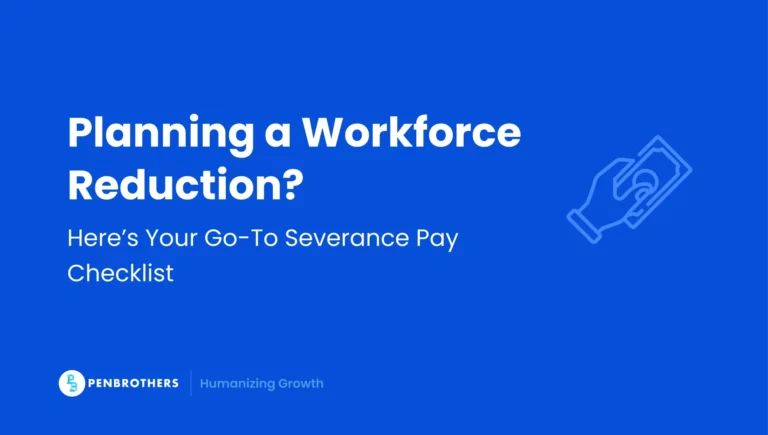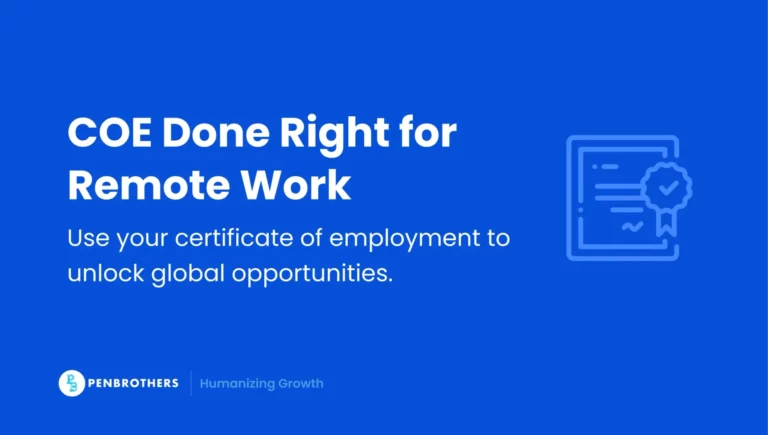Today’s interconnected world has changed the way businesses operate, notably through the rise of hiring offshore talent.
If around 83% of small businesses are investing in outsourcing, it makes sense that larger businesses are also doing the same thing.
Although offshore talent acquisition has been a solution for many businesses, challenges come with it as well. That’s why in this article, we’ll cover some of the obstacles businesses often encounter in offshore recruitment, plus tips on how to jump over these hurdles.
What is Talent Acquisition?
Before talking about global recruitment challenges, let’s quickly discuss the talent acquisition meaning first.
Talent acquisition refers to a business’ processes, systems, and strategies for identifying, searching for, and reaching out to qualified, skilled workers to address certain organizational needs.
Is There a Difference Between Talent Acquisition and Recruitment?
People often use the terms talent acquisition and recruitment interchangeably. However, technically speaking, there is a difference between the two.
Talent acquisition is the ongoing organizational strategy of finding and filling candidate positions on all levels for your business. It involves longer-term strategizing and human resources planning.
On the other hand, recruitment is a part of the talent acquisition process. It is where you start actively looking for the candidates you need and is usually a short-term aspect of talent acquisition.
Why is a Talent Acquisition Strategy Important?
More businesses should pay attention to their talent acquisition strategy. It is key to finding the right talent and determining the roles your company needs to hire in the first place.
Without a well-defined talent acquisition plan, your business might waste time, money, and effort hiring candidates who are not the right fit.
Paying particular care to how you acquire the right talent is crucial to your success. The right offshoring strategy can get you candidates with the right skills at the right cost.
5 Offshore Talent Acquisition Challenges and How to Address Them
Now that you have a better understanding of talent acquisition, let’s discuss the common offshore talent recruitment challenges and solutions.
High Competition for Recruiting High-Value Candidates
Skilled candidates are becoming harder to come by, either because of a lack of training or a high competition for high-value candidates. If you want to get the attention of these highly skilled candidates, then your business needs to step up its talent acquisition game.
A business can consider offering certain benefits that attract skilled candidates. One of these could be a flexible work arrangement.
If possible, a hybrid or remote work arrangement should be a part of your offer to candidates. Since 51% of working professionals prefer remote while 46% prefer hybrid, offering flexible work arrangements can be a strong benefit in your favor.
Being up-to-date on what candidates are looking for is crucial for a continuously successful talent acquisition strategy. That’s why if you want to attract top talent, listen to what they look for in a workplace and consider adding that to your benefit package.
Poor Recruitment Process
For many startups and small businesses that might not have experienced hiring offshore staff yet, one of the challenges could be an inconsistent and unclear recruitment system.
If your recruitment process is confusing to you, what would it appear like for your candidates?
An unclear and poorly planned recruitment system can lead to a lack of transparent communication with the candidate, goalposts constantly moving around, and lots of scheduling issues.
All these unprofessional moves can lead to your business losing the opportunity to hire the right fit.
To solve this hiring challenge, take your time clarifying and plotting your recruitment pipeline.
Picture how your candidate recruitment and interview process is supposed to go and track their movement along that pipeline. That way, it’s easier to create a smoother process for both you and your candidates. Consider availing of an offshore staffing service to do the bulk of the work for you, so you can focus on your core business function or expertise.
Weak Business Presence Deters Ideal Candidates
The more familiar your business is to a candidate, the likelier they are to respond to your recruiters. That’s why boosting your business presence is important not only for attracting customers but also for hiring offshore staff.
You don’t have to be a massively popular enterprise to achieve this. Having a website, an updated social media profile for your business, and a Google My Business account can do the trick.
One of the most common hiring challenges online is the proliferation of scammers out there. Candidates want to protect themselves from them too.
The lack of an online presence might deter them from replying to your recruitment messages, so establishing your digital presence before you reach out to your candidates is a vital step.
Long Hiring Process
A faster hiring process will be more convenient for your candidates and your company. While it’s still a good idea to take your time to find the best client that fits your needs, an unnecessarily long hiring process can leave your business with a gap in the workforce.
Time-to-fill is the length of time it takes for a business to hire a candidate upon a job requisition confirmation. The ideal hiring process length differs from industry to industry. However, the overall average length of time-to-fill is around 44 days, according to a hiring trends report.
To make your hiring process more efficient, consistent and constant communication with candidates and a standardized hiring system is helpful. You can also use the tools mentioned before to speed up certain aspects of the entire talent acquisition system.
Language Barriers/Communication Problems
To avoid language problems and miscommunications, it’s a good idea to hire a local recruiter to bridge that gap for you. A local offshoring company can smoothen language challenges in the recruitment process.
You can also consider offshoring to the Philippines where most workers are fluent in English. Since it’s already one of the languages they speak, it’s easier to communicate with them directly.
Read more: Top Reasons to Hire Filipinos
Final Thoughts
With these tips on overcoming the common talent acquisition challenges and hiring issues, you should be able to find solutions that make sense for your business. Instead of paralyzing or slowing down your offshore recruitment process, face them head-on so that you can find the best candidate offshore in as little time as possible.





